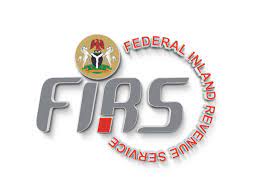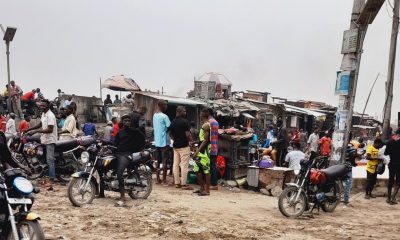BUSINESS
PwC Charges FG to Focus more on Economic Growth, not Tax

Chief Economist, PricewaterhouseCoopers (PwC), Andrew Nevin, says the federal government should focus more on economic growth and not just tax. He disclosed this on Saturday at the Nairametrics economic outlook 2022, themed, ‘Your Money, the Economy and Government Policies’, held virtually.
While highlighting some measures that Nigeria needs to consider to ensure economic growth, he said there should be more on investments to boost revenue generation.
According to him, areas that can shape Nigeria’s economy in 2022 include, harnessing the power of the diaspora, driving export growth through services, and addressing climate-related issues.“I have never been more optimistic than I am in the past 13 years of being in Africa.
The growth in the country has changed shape in five years. Our GDP growth increases but we are not pushing enough of it into investments. We need to at least invest 28 percent to 29 percent of GDP,” Nevin said.“Africa can’t be prosperous by just exporting raw materials. Africa needs to have more intra-trade to increase wealth. “I also think Nigeria is on the right direction for initiating digital tax. However, we suggest that the government focus on money economic growth rather than tax, for it is difficult to raise tax when the country isn’t growing. It is also easier for businesses to pay taxes when they are doing well.
“The agricultural sector is a key aspect that needs to be looked into. The issue of insecurity affects food security and the exchange rate is depreciating and that increases inflation. Until we solve the issue of investments, we wouldn’t solve inflation. “We need to attract investments to be able to close the gap.”
BUSINESS
NGX Says Reforms Set to Strengthen Nigeria’s Investment Climate

Chairman, Nigerian Exchange Group (NGX), Dr Umaru Kwairanga, said ongoing regulatory reforms are positioning țhe nation’s capital market to attract more investments and boost investor confidence.
Kwairanga was quoted in a statement on Sunday in Lagos to have said this during the ongoing 2025 Capital Market Correspondents Association of Nigeria (CAMCAN) Workshop.
The workshop had the heme, “Regulatory Reforms: ISA 2025 and Nigeria’s Investment Climate.
”The NGX Chairman noted that the Investment and Securities Act (ISA) 2025 marked a major step in improving market governance and investor protection.
According to him, the reforms represented structural changes aimed at modernising the market and attracting deeper investment flows.
“With the recent reforms encapsulated in the Investment and Securities Act (ISA) 2025, Nigeria has entered a pivotal phase in strengthening market governance, boosting investor protection, and enhancing overall market competitiveness.
“These reforms are not merely regulatory updates; they are foundational shifts designed to modernise our capital market architecture, attract deeper pools of capital, and position Nigeria as a top-tier investment destination within Africa and globally.
“As we navigate the complexities and opportunities presented by these reforms, your role as market media stakeholders becomes even more critical,” he said.
He said that the Exchange remained committed to supporting reforms that deepen transparency and broaden market participation.
He highlighted NGX Invest as a major innovation designed to simplify public offers and rights issues through digital channels.
Kwairanga said the platform had enabled millions of investors to participate directly in capital-raising activities.
He explained that NGX Invest had improved transparency, strengthened compliance and enhanced efficiency within the primary market.
Kwairanga said these efforts aligned with ISA 2025, which prioritises digital inclusion, operational efficiency and improved investor confidence.
“None of these efforts can thrive without credible and informed communication, and this is where the members of CAMCAN, remain indispensable.
“As journalists and correspondents covering the capital market, you act as a bridge between policy, market activity, and the investing public.
“Your work ensures that reforms are understood, market developments are accurately reported, and public trust is maintained. In a world increasingly challenged by misinformation, your role in delivering timely, factual, and contextual reporting is more vital than ever.
“I therefore charge you to continue upholding the highest standards of professionalism, accuracy and integrity.
“Your contributions help shape investor perception, support regulatory transparency, and ultimately strengthen the Nigerian capital market,” he said.
BUSINESS
Afreximbank Seeks Digital Innovation to Unlock Nigeria’s Trade Potential

The African Export-Import Bank (Afreximbank) said digital transformation is critical to unlocking trade and investment potential under the African Continental Free Trade Area (AfCFTA).
Dr Yemi Kale, Group Chief Economist and Managing Director, Research, Afreximbank, stated this at an engagement event on “Unlocking Nigeria’s Trade and Investment Potential Through Digital Innovation and the Abuja Africa Trade Centre (AATC)” on Thursday in Abuja.
Kale said the AfCFTA had created the world’s largest new trading bloc, representing a unified market of over 1.
3 billion people and a combined GDP of more than 3.4 trillion dollars.“This integration goes beyond a symbolic milestone.
“It is a strategic platform capable of redefining how African economies produce, trade and compete in a rapidly changing global economy,” he said.
He noted that regional integration presented a once-in-a-generation opportunity to expand value chains, reduce dependence on primary commodities, accelerate industrialisation and strengthen Africa’s position in global markets.
Kale, however, expressed concern that intra-African trade still averages between 15 and 18 per cent, compared with 60 per cent in Europe and 40 per cent in Asia.
He identified market fragmentation, high logistics costs, gaps in trade data and cross-border payment challenges as factors limiting trade growth across the continent.
“If Africa must rise to its true economic stature, we must confront these obstacles with clarity, urgency and innovation.
“We must do so using one of the most powerful accelerators available to us and that is digital transformation.”
He explained that digital technologies such as end-to-end supply chain systems, automated customs services, e-commerce platforms, AI-driven market intelligence and digital payments were changing the structure of global trade.
Kale cited Rwanda’s digital single-window model and the growth of mobile money platforms as evidence of successful innovation
He noted that Afreximbank’s Pan-African Payment and Settlement System (PAPSS) was projected to save the continent billions in currency conversion costs.
According to him, digital innovation supports small and medium-sized businesses, including young entrepreneurs who can now access wider markets using online platforms.
He said that Nigeria’s large youth population gave the country a strategic advantage to lead Africa’s next phase of digitally-enabled trade.
“With 65 per cent of Nigeria’s population under 25, our young innovators are creating solutions, founding start-ups and shaping new industries.
“Strengthening skills, regulation, finance and collaboration will accelerate this impact,” he said.
He said Afreximbank was supporting this growth through the African Trade Gateway (ATG), trade intelligence services, and the AfCFTA Adjustment Fund among other initiatives.
“The ATG integrates trade information, due diligence, secure payments, and market insights, which are precisely the tools required for African businesses to compete effectively in an integrated continental market.
“It is, therefore, encouraging that Nigeria has taken a leadership role in advancing these priorities.”
Kale added that the Abuja Afreximbank Africa Trade Centre (AATC) represented the bank’s commitment to modernise trade by providing facilities that integrate information services, exhibition spaces, a business hotel and access to digital trade tools.
According to him, the centre is the first in a network of one-stop trade hubs being developed across Africa and the diaspora.
Kale said the AATC would help businesses access financing, partners, market intelligence, logistics support and technology services within a single space, reducing barriers and transaction costs.
“This building is more than a physical structure. It represents a catalytic platform for integration, innovation and investment,” he said.
He urged stakeholders to work together to drive digital transformation and build a continent where entrepreneurs can compete globally.
“This is not a distant dream. It is a future within our reach if we embrace innovation and collaboration,” he said.
Participants at the event were shown a live demonstration of Afreximbank’s Trade Intelligence Solutions- ATG and TRADAR and explored the role of AATCs in promoting trade and investment.
The event brought together financial institutions, trade organisations, investors and business owners.
Agriculture
FG Empowers 9,870 Farmers with Inputs, Modern Rice Technologies in Kano

The Federal Government, through the Kano State Special Agro-Processing Zone (SAPZ) Programme in partnership with IFAD, has empowered 9,870 rice farmers in Kano with climate-resilient inputs and modern rice production technologies.
This was contained in a statement issued by the SAPZ Knowledge Management and Communication Officer, Rabi Mustapha.
The State Project Coordinator, Aminu Iliyasu, disclosed this on Sunday during the Farmers Field Day at Chiromawa Garin Babba Cluster in Garun Malam Local Government Area.
He said the exercise was organised to expose the farmers to Science-based and practical solutions capable of enhancing yields, improving food security, and boosting rural livelihoods.
Iliyasu described the field day as a celebration of knowledge, innovation and the resilience of smallholder farmers.
He explained that the SAPZ initiative in Kano aimed to expand access to improved technologies, strengthen extension services, reduce post-harvest losses and create market opportunities for rural farmers.
“These innovations are not theoretical. They are practical solutions that farmers can adopt immediately to raise productivity and increase income,” he said, while commending the support of local authorities.
Mustapha said the inputs distributed to 9,870 farmers included FARO 44 improved seeds, Urea and NPK fertilizers, and insecticides, targeting beneficiaries in Garun Malam, Gezawa, Bichi and Bagwai LGAs during the 2025 wet season.
She added that experts trained farmers on soil selection, seed dressing, nursery establishment, land preparation, and timely transplanting at proper spacing.
“They also covered fertilizer management, weed control, Integrated Pest Management and water regulation to boost rice yields.
“The training emphasised harvesting at optimal maturity, drying paddy to safe moisture levels, and fumigation using phostoxin to prevent storage losses,” she stated.
A beneficiary, Salamatu Ali, said the intervention had positioned Kano farmers to boost yields, withstand climate pressures and increase household incomes.
Another farmer, Huwaila Ibrahim, said the programme transformed her approach to rice production.
“Before, we planted without checking whether the land was suitable.
“Now, we first assess the soil to ensure it matches the seed variety. This season, we cultivated FARO 44,” she said.
Ibrahim added that her output increased from 20–25 bags per acre to about 40 bags after adopting the improved technologies.



























